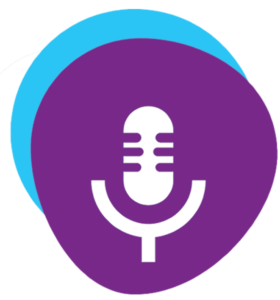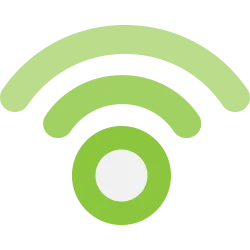Best Podcast Recording and Hosting software
Learning whilst driving or walking, and catching up with the latest news while folding laundry, has never been easier than it is now, due to the rise of podcast platforms. Starting a podcast of their own also seems to be an aspiration of many people. Even resources on how to start a podcast show sound convincing enough, “If you’ve got something to say, you are ready to start a podcast.” Frankly, I thought I was ready for it too, until I realized I was much better at writing words, rather than vocalizing them in an improvised way.
Although those couple of months of delving into what is the best podcast hosting software on the market did not make me start my own podcast show (perhaps, one day), it convinced me of a somewhat confusing abundance of podcast platforms. I learned quite a lot about the pros and cons, features and developments of the most popular podcast software. (I also tested several of them.) Whether you are searching for the best podcast platform to reflect on cultural events, planning to host an interview-based show with experts, or use it for growing your business, this guide will take you down the road of learning all you need to know about what software is considered best, which platforms are the most affordable and most user-friendly and much more.
Podcast software is a multifunctional space for podcast hosts to create, distribute and monetize digital audio files. Most software on our list not only allow recording and editing audio, but also videotape the host and/or their guests. Besides recording, most software also feature audio editing, podcast analytics, file sharing, and monetization options. Some also offer a downloadable transcript of a recording, and AI voice improvement. (Since audio quality is the most important aspect of podcasting, stay on the lookout for such features as noise reduction filters, equalizer settings, chorus effects, volume automation and fade/outs.)
Although not the first feature that comes to mind, analytics is another key component for any podcast show. A quick, occasional look at analytics can provide valuable insights into the number of listeners per episode, their geo-location, total listens per episode, and other data. An overview of who comes to listen to your show and how fast it is growing is not only useful, but also helps to strategically approach which direction you want to go with it.
Thinking further, when your podcast show expands, you might consider monetizing it. Several podcast software offer monetization options from ad placement and subscription plans, to sponsorship from third-party companies and brands.
Types of Podcast Software
Mobile Apps Podcast Software:
Designed for mobile devices, this type of podcast software is ideal for beginners. Such apps allow easy access to your favourite shows and make it possible to record your own podcasts without using a PC. Although this is not the case with every mobile podcast app, several of them make it easy to upload recently recorded episodes directly from a cellphone without a need for a separate program.
Desktop Podcast Software:
Far more advanced than mobile apps, desktop software (downloaded and installed onto a computer) is used to record, edit, publish and distribute podcasts. Typically, desktop software offers a more extensive range of editing features, such as audio filters, sound effects and even the ability to use AI for reducing background noise and adjusting voice pitch.
Web-Based Software:
Web-based podcast software is similar to the desktop version, without having to download and install, and is accessible via the web browser. Hence, it requires less storage space (and might be easier for novice users). Although this type of software’s editing features are somewhat limited, it is an ideal choice for those who are just starting. Web-based podcast software often offer free versions with possible upgrades for additional features.
Automation software:
If you are planning to upload several episodes a week/month, but are afraid of time-consuming tasks like scheduling, formatting, and uploading to various platforms, automation software might be right for you. This type of podcast software takes care of those tedious tasks, saving you time and allowing you to avoid technical confusion when trying to share new episodes on iTunes, YouTube and Apple Podcasts.
Recording Software:
Not every podcaster is planning to rent out a studio or even find a quiet corner in their apartment. Many prefer to share their thoughts and reflections by capturing them in real-time. That is where recording software might be quite useful. Some of those programs feature basic editing tools, while more advanced programs offer impressive audio editing such as sound effects, compressor/expander settings, background noise cancelling and more, which allows for capturing of audio without any additional equipment.
Podcasts Software Features to Look For
Recording (Audio/Video):
No doubt, the most crucial part about recording podcasts is a noise-free, clear audio. However, more podcasters choose software that also allows video recording. The main reason is monetization opportunities on YouTube. Keep that in mind when signing up for a software plan that does not offer video recording: although you might not need it at the beginning, you might consider showing your face as your audience grows.
Editing Capabilities:
While most podcast software, whether a mobile app or desktop programs, offer a selection of editing tools, some of them go beyond the basic package. You might have to pay a higher price, but then again, features that could perfect the audio, add sound effects, provide you with a script, and overall improve the quality of your show are truly worth it.
Although not as much as an editing tool, scheduling is a useful feature to look for: planning ahead and setting a specific time for the release of each episode makes it easier to be consistent with weekly content.
Analytics:
Boring and sometimes discouraging, analytics, on the other hand, are a clear indicator of how fast your podcast show is growing. Insights on how many people are listening and watching each episode, how long it captured their attention, and how often fans re-shared it are valuable insights into what you could improve or strengthen in your recordings. Tracking listeners’ behaviours helps to better understand how popular your podcast is compared to competitors and plan the upcoming content accordingly.
Here, community interactions is another key factor to consider when tracking show analytics. You might consider creating forums for discussing topics you have covered on your show, Q&A live sessions, polls for feedback and online meetups with fans. All those methods of engaging with subscribers, although they require some additional work, allow your show to grow faster in popularity.
Sharing Options:
Where and how you share your podcasts matters as much as audio quality, simply because that is where your potential audience is searching for content. Look for software that allows you to upload new episodes on several platforms, including, but not limited to, YouTube, iTunes, Spotify, Apple Podcast and others.
Additionally, most podcast software features built-in sharing buttons, which provide listeners with an option to share their favourite episodes on social media platforms.
Podcast Software Cost
The good news is that several podcast software offer a free version (with limited features). Yet, in most cases, it is more than enough to try out podcasting before committing to a paid subscription. However, if you are serious about growing your show and gaining more subscribers, you will need additional editing features. More advanced programs generally vary between $15-$60 per month. Those are Premium and Business plans that offer sophisticated editing tools, royalty-free audio libraries, monetization and higher video and audio quality.
Podcast Software Integrations
Podcast recording software can easily integrate with music streaming platforms such as Spotify, Apple Music, YouTube, Amazon Music and others. Some of those platforms allow recording and distributing podcasts via plugins and extensions.
Additionally, several podcast software enable integration with content management systems such as WordPress, which allows you to create an online presence for your feed.




